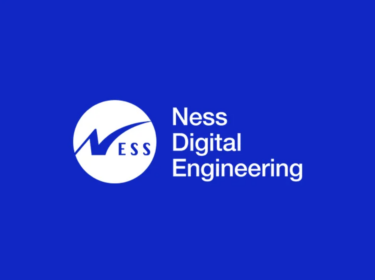This September, investors and dealmakers met at The Beverly Hilton in California for M&A SoCal 2025, the ACG Los Angeles’ flagship dealmaking event. For the first time, the event featured the AI Con edition, a program focused on how artificial intelligence shapes transactions and strategies of private equity firms, advisors, and portfolio companies, and how companies can translate AI investments into measurable results.
Through AI Con, this year’s M&A SoCal event placed a strong focus on artificial intelligence, providing participants with a closer look at the latest tools and technologies. The showcase enabled investors and advisors to see how AI is being applied at various stages of the deal process, from the initial search for opportunities to the final steps of integration.
A highlight of the event was the panel “Data to Dollars: Unlocking Transaction Value Through AI.” Mariano Jurich, Product and Project Manager from Making Sense, moderated the session. Panelists included AI Leader in Deloitte’s M&A practice, Kara Gerardin, and Operating Partner at Diversis Capital, Alex Tumarinson, bringing together industry experts with deep experience scaling businesses through technology and data-driven strategy to explore the challenges from multiple perspectives, mainly centered on where AI is delivering value in M&A and where adoption is falling short.

The panel outlined how AI is gaining traction in targeted areas, and began by asking who was using AI and who was satisfied with the results. While most attendees were investing in AI, far fewer were seeing real benefits, echoing industry data showing 90% of companies are testing generative AI, but only 5% report measurable gains.
“Adoption isn’t the issue,” said Jurich. “The challenge is capturing value.” The panel noted that the main barriers aren’t technical but stem from unclear goals, ownership, and metrics, leaving many projects stuck in pilots instead of delivering scalable impact.
The enthusiasm is clear, but results are not guaranteed. MIT research shows that 95 percent of AI pilots fail to deliver measurable ROI, often due to flawed integration rather than weak technology. Work OS reports that 42 percent of companies abandoned AI initiatives in 2025, up from 17 percent the year before.
“Most organizations haven’t figured out how to turn experimentation into tangible impact,” he said. The focus needs to shift from technology for its own sake to business outcomes tied to revenue, efficiency, or margins.
Jurich explained that the firms that see results keep their scope small. “Companies that succeed with AI are not trying to do everything at once,” he said. “They focus on two or three high-impact opportunities, assign them to business owners who are accountable for results, and track key metrics like baseline performance and time-to-value. That is where the real transformation happens.” This approach reflects how Making Sense collaborates with mid-market firms to align AI projects with specific, measurable business objectives.
To illustrate real-world impact, the panel also highlighted lending and legal services. In lending, AI is helping predict borrower behavior, prioritize leads, and automate decisions, boosting conversion rates and revenue. In law firms, AI is used to process documents, identify client trends, and optimize resources, resulting in faster case resolutions and increased profits.
“These examples show impact comes less from advanced research and more from using existing tools strategically and linking them to clear business outcomes,” said Jurich.
For investors, the conversation pointed to two practical considerations. First is AI readiness, the degree to which a company is prepared to integrate AI into operations and extract efficiencies. Second is defensibility, the question of whether an industry is vulnerable to AI-driven disruption and how resilient a target company might be. These factors are now central in due diligence and valuation.
Jurich pointed out: “Opportunities are not years away. They are here now. Companies that act today improve efficiency, profitability, and the employee experience. Waiting only increases the cost of adoption later.”
Making Sense shared how it works with portfolio companies to move from strategy to execution. The approach focuses on measurable outcomes from the start. Consolidating knowledge bases to make information easier to access, running exploratory data analysis to identify value creation levers, and visualizing data so decision-makers see where margins and growth are possible.
“Legacy systems and a lack of digital infrastructure are the most common barriers. To unlock AI’s full potential, SMBs need to invest in modernizing their systems to create an environment that supports AI’s data requirements,” Jurich has said.
At M&A SoCal 2025, AI is present in today’s mid-market, influencing valuations, strategies, and execution. Companies that treat adoption as a structured process rather than a one-time bet will be positioned to compete. Making Sense will continue to collaborate with investors and portfolio companies to deliver innovative and improved AI results.












